Living Around the World 2.0
Has come to a close…but 3.0 is coming!
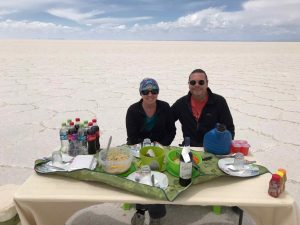 Tracey and I literally circumvented the globe in 2018, beginning and ending in Sarasota Florida. We spent 1,060 days the past three years in 21 countries with one stint back in the USA for a few months.
Tracey and I literally circumvented the globe in 2018, beginning and ending in Sarasota Florida. We spent 1,060 days the past three years in 21 countries with one stint back in the USA for a few months.
Living around the World 1.0
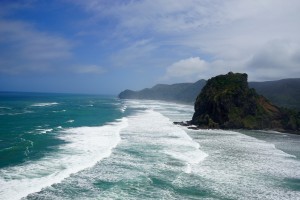 In 2015, we made the decision to leave our professional careers, sell our home, cars and rid our lives of most of our “stuff”. Near the end of 2015 we launched into this very different, unconventional, non-routine lifestyle. For nearly two years, we lived in New Zealand, Australia, Thailand, Laos, Vietnam, Cambodia, Singapore, Hong Kong, Japan Peru (including the Huacachina Oasis, it’s beautiful desert coastline, Machu Picchu and the Amazon Jungle), Bolivia, and Argentina.
In 2015, we made the decision to leave our professional careers, sell our home, cars and rid our lives of most of our “stuff”. Near the end of 2015 we launched into this very different, unconventional, non-routine lifestyle. For nearly two years, we lived in New Zealand, Australia, Thailand, Laos, Vietnam, Cambodia, Singapore, Hong Kong, Japan Peru (including the Huacachina Oasis, it’s beautiful desert coastline, Machu Picchu and the Amazon Jungle), Bolivia, and Argentina.
What is Living Around the World?
We think of this phase of our life as “living around the world”. It is not a “vacation” in the traditional sense. Those on one, two, or three week vacations typically go to see things, passing through. We go to feel things, to experience life and be a part of the community. We go and “pound the pavement”. What we experience and feel over three, four or five weeks in a country or place cannot be experienced in three, four or five days.
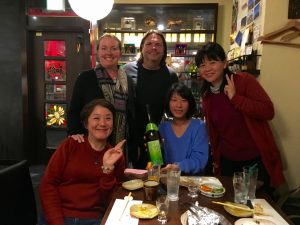 We are not visiting tourist sites each day, not staying at the Ritz or fancy resorts (for the most part), and not eating at Michelin star restaurants most days. We often find a “favorite” restaurant or pub and become regulars. We are not accumulating a bunch of souvenirs along the way, maybe just a necessary t-shirt or bottle of wine if it will not cause our baggage to exceed airline weight limits.
We are not visiting tourist sites each day, not staying at the Ritz or fancy resorts (for the most part), and not eating at Michelin star restaurants most days. We often find a “favorite” restaurant or pub and become regulars. We are not accumulating a bunch of souvenirs along the way, maybe just a necessary t-shirt or bottle of wine if it will not cause our baggage to exceed airline weight limits.
 Rather, we are practicing the activities of daily living like most folks in a more traditional lifestyle. We make decisions around what we will we eat for meals, how we will travel from place to place, what to do if we need medical care, what kind of exercise we will do, what work will we do, take an accounting of income versus expenses relative to a budget, and yes, plan for future vacations. (Sometimes you need a “vacation from the vacation”, lol.) Other days we rest, doing very little, having a “movie day or night” on the couch.
Rather, we are practicing the activities of daily living like most folks in a more traditional lifestyle. We make decisions around what we will we eat for meals, how we will travel from place to place, what to do if we need medical care, what kind of exercise we will do, what work will we do, take an accounting of income versus expenses relative to a budget, and yes, plan for future vacations. (Sometimes you need a “vacation from the vacation”, lol.) Other days we rest, doing very little, having a “movie day or night” on the couch.
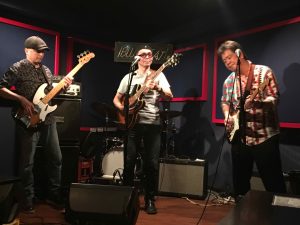 Yes, we see many of the touristy “highlights”, but there is another level of depth to a place. We like to experience the culture of a place, experience life as much as we can as locals do. To achieve this, we often spend around a month or more in major cities or areas. We meet locals, make new friends, shop at local markets, eat local food, listen to local musicians and attend local events. When it comes down to it, understanding a region’s culture is about interacting with the people.
Yes, we see many of the touristy “highlights”, but there is another level of depth to a place. We like to experience the culture of a place, experience life as much as we can as locals do. To achieve this, we often spend around a month or more in major cities or areas. We meet locals, make new friends, shop at local markets, eat local food, listen to local musicians and attend local events. When it comes down to it, understanding a region’s culture is about interacting with the people.
We have used Airbnb for many of our stays (60% plus), short terms and long term. Airbnb can easily offer more of a “home” feeling, and are typically in parts of a city or country where “locals” live. (Click here to receive up to $40 off your first Airbnb stay.)
Living around the World 2.0
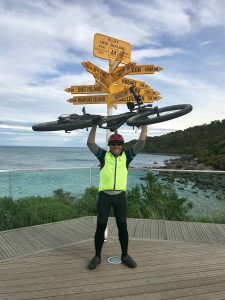
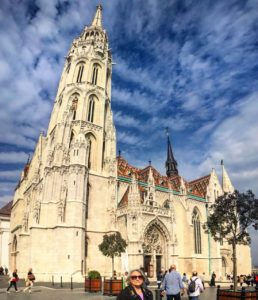
The last fantastic ten-month journey around the globe started in January 2018 with a 29-day, 3,000 km bicycle ride across New Zealand and ended with a 6 week stay dog sitting in Budapest and a brief five-day tour of Lisbon in October.
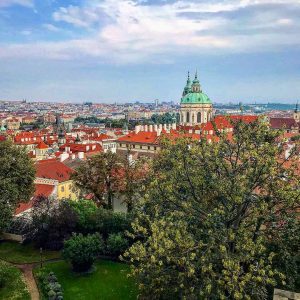
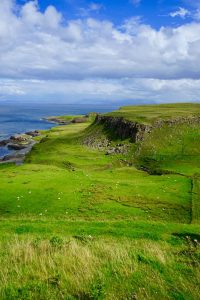
We also lived part of the year in some amazing places, including Tasmania, Iceland, Faroe Islands, Denmark, England, Ireland, Northern Ireland, Scotland, Germany and the Czech Republic.
Learning and Insights
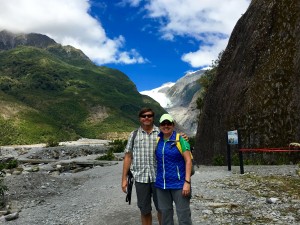 We enjoy getting out of our comfort zones and broadening our perspectives, and, as a result have come to many realizations from different angles along the way. The list below is not complete and not necessarily in any order of importance. It will surely grow! It is not really a list of logistical travel tips, which, perhaps, is for another time.
We enjoy getting out of our comfort zones and broadening our perspectives, and, as a result have come to many realizations from different angles along the way. The list below is not complete and not necessarily in any order of importance. It will surely grow! It is not really a list of logistical travel tips, which, perhaps, is for another time.
- For the most part, people everywhere want the same thing.
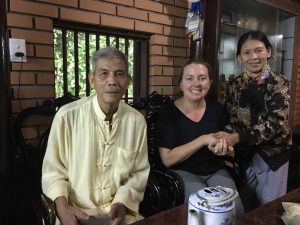 They want safety, a roof over their heads, decent job, food on the table, and a good social circle.
They want safety, a roof over their heads, decent job, food on the table, and a good social circle.
- People are different than their “governments”
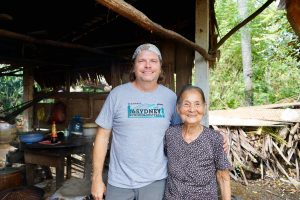 Except for some “Blind Nationalism”, people see themselves and more importantly, foreigners, as different from their governments. Governments and the extreme nationalists are usually the cause of differences, and, luckily, the extreme nationalists are “few and far between”. We have met absolutely wonderful people from all around the globe!
Except for some “Blind Nationalism”, people see themselves and more importantly, foreigners, as different from their governments. Governments and the extreme nationalists are usually the cause of differences, and, luckily, the extreme nationalists are “few and far between”. We have met absolutely wonderful people from all around the globe!
- When you’ve met one person from a country, you’ve met one person from a country, don’t generalize
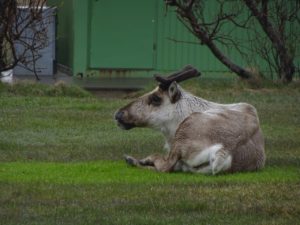 It’s interesting that many people can form strong opinions about countries that they have never visited….or visited for a brief time. We often will hear people talk about whether or not they like a place, concluding this from only spending a few days, a weekend or even a week or two in a place. We think deriving such a conclusion from a brief experience or a bad encounter with someone in another country is nonsense. Don’t some people everywhere in the world have a bad day every now and then?
It’s interesting that many people can form strong opinions about countries that they have never visited….or visited for a brief time. We often will hear people talk about whether or not they like a place, concluding this from only spending a few days, a weekend or even a week or two in a place. We think deriving such a conclusion from a brief experience or a bad encounter with someone in another country is nonsense. Don’t some people everywhere in the world have a bad day every now and then?
- No country is perfect
 No single country has “figured it all out”. And no, not even the USA. All countries do things differently whether it be how health care works, the economy, government, education, transportation and what is valued. Be humble and open minded. It is the best way to learn and to generate new ideas and innovation.
No single country has “figured it all out”. And no, not even the USA. All countries do things differently whether it be how health care works, the economy, government, education, transportation and what is valued. Be humble and open minded. It is the best way to learn and to generate new ideas and innovation.
- People naively believe that the US is the “safest” country in the world
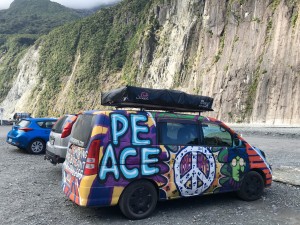 It seems US citizens are traveling more internationally, but still much less than those from other developed countries. Fear, or perhaps more accurately, paranoia holds many back from venturing outside of their comfort zones. A 2018 study of the Global Peace Index ranks the US 131 out of 163 countries in terms of “peacefulness”.
It seems US citizens are traveling more internationally, but still much less than those from other developed countries. Fear, or perhaps more accurately, paranoia holds many back from venturing outside of their comfort zones. A 2018 study of the Global Peace Index ranks the US 131 out of 163 countries in terms of “peacefulness”.
- Never enough time
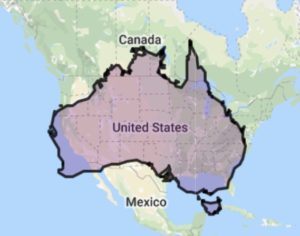 While visiting one month in an area or a city may seem like a lot of time, it still isn’t. We often chuckle when people say they want to see many different places in Australia (e.g. the Great Ocean Road, the Great Barrier Reef, Sydney, Melbourne, the Outback… oh, “and by the way, we have two weeks”. Landmass wise, Australia is a large as the US. I lived in Chicago for 17 years and I often feel that it didn’t seem like “enough time” in that great city.
While visiting one month in an area or a city may seem like a lot of time, it still isn’t. We often chuckle when people say they want to see many different places in Australia (e.g. the Great Ocean Road, the Great Barrier Reef, Sydney, Melbourne, the Outback… oh, “and by the way, we have two weeks”. Landmass wise, Australia is a large as the US. I lived in Chicago for 17 years and I often feel that it didn’t seem like “enough time” in that great city.
- Most people’s lives don’t change much
There are a few life events that change a person’s life: birth, death, marriage, divorce….by and large, we are all “creatures of habit”. Most people essentially do the same things, week in and week out, even often vacationing at the same places each year. The world has “become smaller” with improved technology, but, there is still much to explore, learn and experience if one “steps outside of their box”…and they can have fun doing it!
- Yes, the World gets “smaller and smaller”, but differences still exist
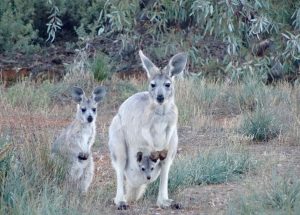 We find that we have visited so many museums, castles, parks, monuments, churches, gardens, etc., sometimes we say “we can’t do one more today”. But look for those things that seem unique, as there are usually histories and details that distinguish places. Also, routine tasks and customs are often different, whether it be how people greet one another, travel, eat, exercise, entertain or relax.
We find that we have visited so many museums, castles, parks, monuments, churches, gardens, etc., sometimes we say “we can’t do one more today”. But look for those things that seem unique, as there are usually histories and details that distinguish places. Also, routine tasks and customs are often different, whether it be how people greet one another, travel, eat, exercise, entertain or relax.
- There is a good balance between planning, or not, in advance
We try to be as flexible as possible when planning our travel. That is, we try to balance making sure we have a place to live, avoid last minute searching, sleeping in the car and being able to stay longer or shorter depending on if we like or dislike a place. The “popularity” of a place (e.g. the supply/demand for accommodations) likely will dictate how far in advance you should reserve. What we dislike is arriving somewhere late and spending a couple hours trying to find a decent, comfortable place to sleep.
- Need to spend time reading, researching before reaching a new destination
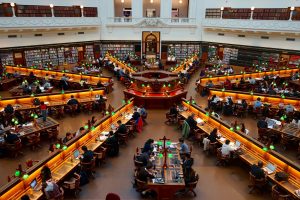 Reviewing the history of an area or region deepens the experience and helps ensure we spend time exploring areas of interest or curiosity.
Reviewing the history of an area or region deepens the experience and helps ensure we spend time exploring areas of interest or curiosity.
- Being with your partner 24/7 creates interesting habits
 On one hand, it is terrific to be with someone you love 24/7/365. What we have found, whether totally accurate or not, is that when we have an opportunity to talk to someone other than each other, we probably “talk their ear off”. Not that we don’t like talking to each other, but being able to talk to others about their knowledge, experiences and perspectives peaks our curiosity. On the other hand, it gives us the opportunity to dialogue around our own learning and perspectives with each other (which often times may be different, lol).
On one hand, it is terrific to be with someone you love 24/7/365. What we have found, whether totally accurate or not, is that when we have an opportunity to talk to someone other than each other, we probably “talk their ear off”. Not that we don’t like talking to each other, but being able to talk to others about their knowledge, experiences and perspectives peaks our curiosity. On the other hand, it gives us the opportunity to dialogue around our own learning and perspectives with each other (which often times may be different, lol).
- “Don’t sweat the small stuff…and it’s all small stuff”. Travel will be richer if you are open, curious, optimistic.
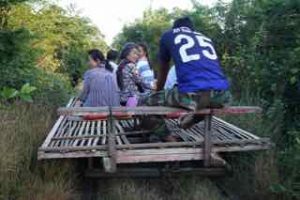 We often hear people complain about food, transportation, service, or just about anything different for a place they are visiting. If you don’t want to experience anything different or expect “things” to be the same, stay home. Rather, be curious, optimistic and try to understand why there are differences. We once heard someone say, “Spain has too many Spanish people”!
We often hear people complain about food, transportation, service, or just about anything different for a place they are visiting. If you don’t want to experience anything different or expect “things” to be the same, stay home. Rather, be curious, optimistic and try to understand why there are differences. We once heard someone say, “Spain has too many Spanish people”!
- “To each his own”
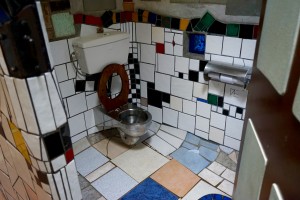 We find ratings regarding cities, restaurants, museums, etc are in the eye of the beholder. Consider the messenger when reading reviews or talking to others. Look for the positives and items of interest. We think nearly everyplace can be interesting. FYI…New Zealand takes pride in their public bathrooms!
We find ratings regarding cities, restaurants, museums, etc are in the eye of the beholder. Consider the messenger when reading reviews or talking to others. Look for the positives and items of interest. We think nearly everyplace can be interesting. FYI…New Zealand takes pride in their public bathrooms!
- Don’t over-plan and look for everything to be perfect
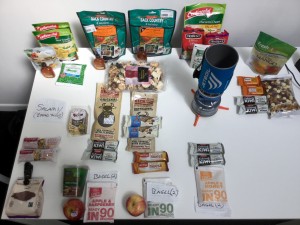 You can spend way too much planning, and will likely not yield better travel results. Leave some time for spontaneity and serendipity! I used to be someone who felt I had to try and do “everything” when visiting a place. Of course, you can’t and if you have that expectation you will always feel disappointed. Relax and enjoy what you can…as we like to say, we can always go back!
You can spend way too much planning, and will likely not yield better travel results. Leave some time for spontaneity and serendipity! I used to be someone who felt I had to try and do “everything” when visiting a place. Of course, you can’t and if you have that expectation you will always feel disappointed. Relax and enjoy what you can…as we like to say, we can always go back!
Sometimes you will have experiences that you may find to be not that exciting or a waste of time. What some people like, you may not. When we find or do something that just was not that stimulating, we just say “now at least we know what we didn’t miss” and move on.
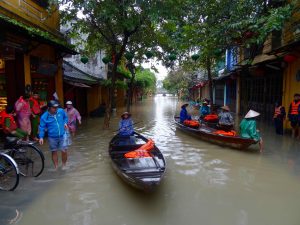 And of course there are those occurrences that you just can’t plan for…like the flood we experienced in Hoi An, Vietnam!
And of course there are those occurrences that you just can’t plan for…like the flood we experienced in Hoi An, Vietnam!
- The human race has treated one another horribly…everywhere
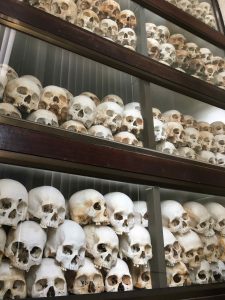 There are many horrible atrocities around the world, hardly a country, a people or religion is exempt.
There are many horrible atrocities around the world, hardly a country, a people or religion is exempt.
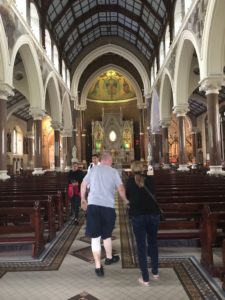 Nearly every country has its own horror story about how humans have treated one another. From Nagasaki to Hiroshima to Cambodia and the Killing Fields to the Troubles in Northern Ireland, Hitler and the Nazis, Australia and the US and their indigenous people, and on and on…
Nearly every country has its own horror story about how humans have treated one another. From Nagasaki to Hiroshima to Cambodia and the Killing Fields to the Troubles in Northern Ireland, Hitler and the Nazis, Australia and the US and their indigenous people, and on and on…
- Yes, you will miss friends and family…but you don’t have to!
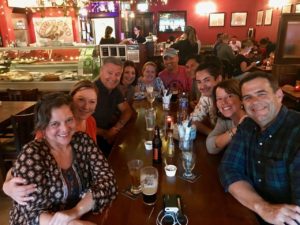 We have had family and many friends join or visit us on several trips. It can be a great idea to have them use part of their vacations to meet you in some new and foreign land. We have had folks visit us in New Zealand, Australia, Ireland, Scotland, Germany, England, Czech Republic and Hungary.
We have had family and many friends join or visit us on several trips. It can be a great idea to have them use part of their vacations to meet you in some new and foreign land. We have had folks visit us in New Zealand, Australia, Ireland, Scotland, Germany, England, Czech Republic and Hungary.
- Travel while young…many more opportunities while your body is still well functioning
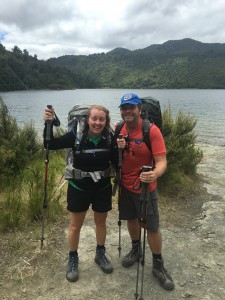
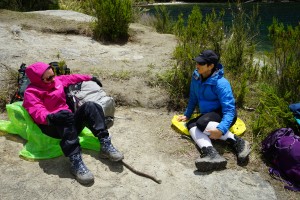 Growing up with a single parent and a very limited household income, I always viewed my grandparents as “wealthy”. In their 70s, they had a home “up north” and snow-birded it to Florida for winters. They had an RV and a small fishing boat in Florida. But one thing I noticed, they had difficulty getting around. I thought to myself that the lifestyles seem backwards. That is, when you are young you are typically in better shape and mobile, but you have less time and money. Most folks have more money when older, but are not in the shape to do much in terms of activity. My goal became to “retire” (i.e. achieve financial independence) early.
Growing up with a single parent and a very limited household income, I always viewed my grandparents as “wealthy”. In their 70s, they had a home “up north” and snow-birded it to Florida for winters. They had an RV and a small fishing boat in Florida. But one thing I noticed, they had difficulty getting around. I thought to myself that the lifestyles seem backwards. That is, when you are young you are typically in better shape and mobile, but you have less time and money. Most folks have more money when older, but are not in the shape to do much in terms of activity. My goal became to “retire” (i.e. achieve financial independence) early.
- Experiencing the World does not have to cost a fortune
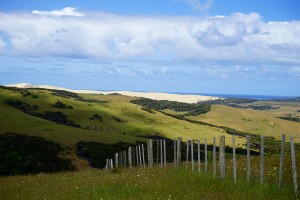 We added up our fixed monthly expenses on all our “stuff” and came to the realization that we could live about anywhere in the world on less, much less. No mortgage, no car payment, no house maintenance, no homeowners or auto insurance, etc. It is amazing what is spent that can be eliminated if you have a different vision and choose a different lifestyle. The alternatives are many, once you free the cash flow.
We added up our fixed monthly expenses on all our “stuff” and came to the realization that we could live about anywhere in the world on less, much less. No mortgage, no car payment, no house maintenance, no homeowners or auto insurance, etc. It is amazing what is spent that can be eliminated if you have a different vision and choose a different lifestyle. The alternatives are many, once you free the cash flow.
- F.I.R.E. Financial Independence, Retire Early
This has recently become a popular acronym in the financial world. It is not impossible…rather, very possible and not rocket science. In our opinion, it’s never too late to start. Save and invest “early and often”. Obviously, it is better to start younger, you will just reach independence earlier. A few solid simple guidelines will get you there.
How to make it happen
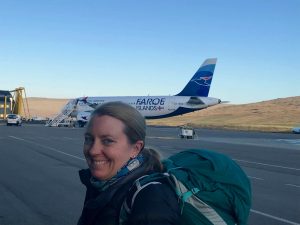 There are a few principles, habits and or methods that can make a more independent lifestyle possible. These three, if followed over time, will help anyone meet their vision and goals.
There are a few principles, habits and or methods that can make a more independent lifestyle possible. These three, if followed over time, will help anyone meet their vision and goals.
- Don’t over-consume. “Stuff” is overrated and the euphoria experienced when purchasing wears off quickly.
- Make savings a priority. Don’t take the route of spending first, then save what’s left. Save first, then spend.
- Invest early, often and regularly in a diversified portfolio of assets. Let the power of compounding work for you.
 Financial planning and investing has been and continues to be a strong interest. There are many details and angles that one can get mired in, but the plan doesn’t have to be complicated. It’s important to dream, have a vision, goals and then plans that can be executed to meet them.
Financial planning and investing has been and continues to be a strong interest. There are many details and angles that one can get mired in, but the plan doesn’t have to be complicated. It’s important to dream, have a vision, goals and then plans that can be executed to meet them.
What’s Next?

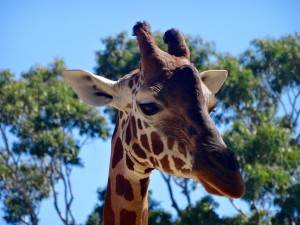
The journey so far has been incredible, eye-opening, and full of learning. Living Around the World 3.0 will continue in 2019 on the African continent. We will be spending significant time in South Africa, Tanzania, Zambia, Zimbabwe, Botswana, Kenya and Uganda.We are looking forward to new cultures, new landscapes and engaging with new friends and old friends around the world! Come join us!
Wise words!
Love to join you guys on a trip thats my style of travel.
Africa will be amazing
That would be awesome! Maybe some cycling?!
Great stuff guys!! Hope we can join you on one of these legs of your journeys soon!
Yes we do too! Or maybe even a round of golf in AZ!
?? nice article, miss you guys, can’t believe it’s been a year! I’m trying to free myself (again) so I can travel again.
Yes time is flying! That was an incredible experience…let us know when and where you are going next!